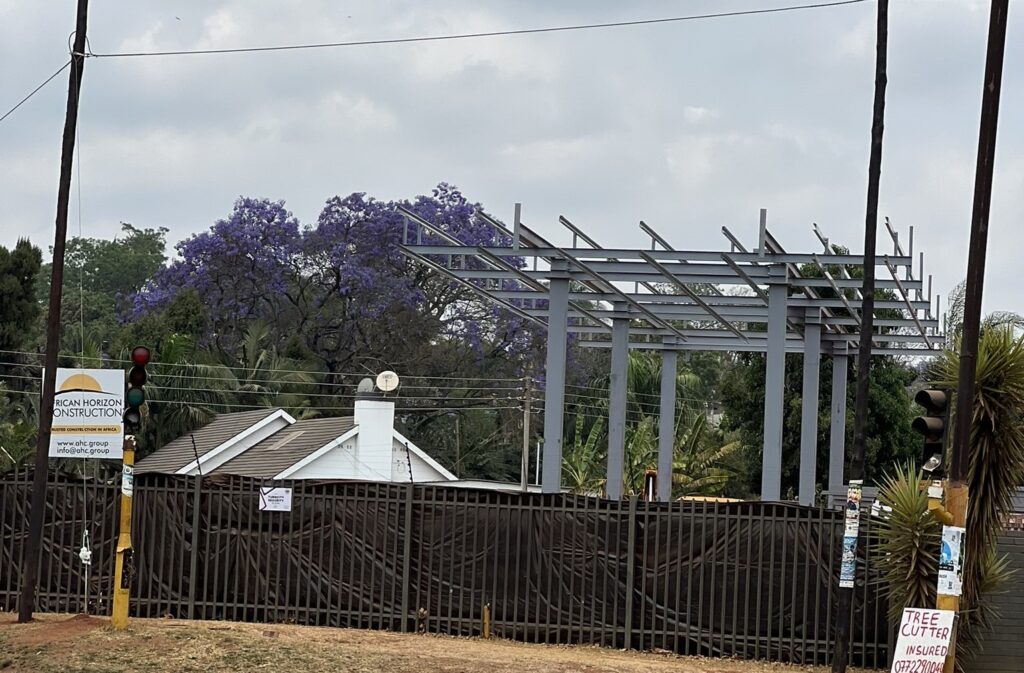An in-depth investigation into the City of Harare’s operations has unveiled alarming evidence of corruption, enabling the construction of fuel service stations in violation of city by-laws. Some of these stations have been erected in residential areas, posing serious risks to residents.
Despite its mandate to safeguard public spaces and the environment, the City Council has reportedly turned its responsibilities into an opportunity for personal gain, exploiting desperate residents and allowing an unchecked proliferation of fuel stations in unauthorized locations.
These actions contravene city regulations and endanger public safety.
In recent years, the number of fuel stations across the country has surged, with some built in inappropriate locations, including road servitudes, residential neighborhoods, and even near water sources.
Over the past four years, regulators have issued more than 3,300 licenses, reflecting a peak in fuel station construction.
The City of Harare’s alleged mismanagement and disregard for by-laws, resulting in widespread chaos, were exposed during a commission of inquiry into its governance.
One area particularly affected is Westgate, a suburb known for its vibrant community. Within a one-kilometer radius, five fuel stations have been constructed, including Global, Puma, and Total.
Also read: Mjolo Exposes Goromonzi Armed Robbery Syndicate As Girlfriend’s Loot Leads Police to Suspects
Alarmingly, another station is under construction just 100 meters from Total. Similarly, a new station is being built in Greencroft Shopping Centre.
Admission of Powerlessness and Regulatory Gaps
Appearing before the commission, Takudzwa Dzumbunu, the City of Harare’s Committee Chairperson for Works and Town Planning, admitted to being powerless in her role. She stated that despite raising concerns and citing legal grounds to halt these constructions, her directives were ignored by technical officers.
“Yes, I indicated to the concerned directors that this is not right. It’s [the service station] right next to a house,” Dzumbunu said. She emphasized the need to revise local development plans to relocate such stations and mitigate the dangers they pose to residents.
Residents have called on the commission to hold the City Council accountable for creating what they describe as a “time bomb” that could have disastrous consequences.
Blame Shifting and Loopholes in the System
When questioned by Thabani Mpofu, the commission’s evidence leader, Dzumbunu gave conflicting responses, further implicating city officials in the illegal proliferation of service stations.
Dzumbunu highlighted two major challenges:
- Private Landowners: By law, individuals can apply to change the use of private land under the Regional Town Planning Act, which limits the council’s ability to block such developments.
- Lack of Scrutiny: Service stations built in areas deemed “freely permissible” or included in local plans often bypass committee scrutiny. This has led to situations where council members only learn about projects through social media or after construction has begun.
“If these projects come to the committee, we can scrutinize and determine which to approve or reject. Unfortunately, most of them never come to us,” Dzumbunu explained.
Ineffectiveness of Regulatory Enforcement
Although the Zimbabwe Energy Regulatory Authority (ZERA) arrested 292 individuals last year for operating illegal fuel stations or setting up without authorization, such enforcement efforts appear ineffective. Business tycoons have exploited loopholes in city council regulations, enabling them to continue these unauthorized constructions.
The commission’s inquiry has placed the City of Harare under scrutiny, raising hopes among residents for stricter enforcement of by-laws and accountability for those involved in corruption.
For comments, Feedback and Opinions do get in touch with our editor on WhatsApp: +44 7949 297606.
